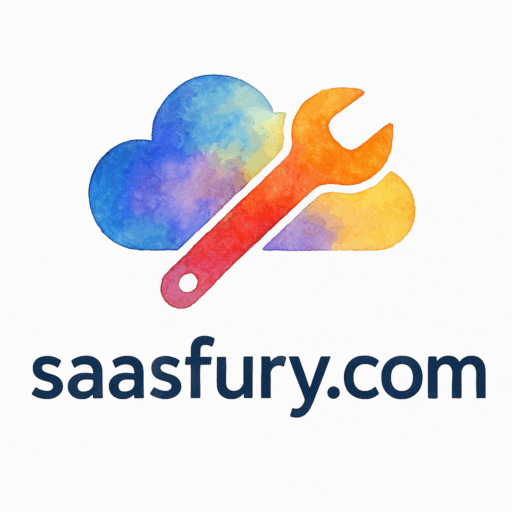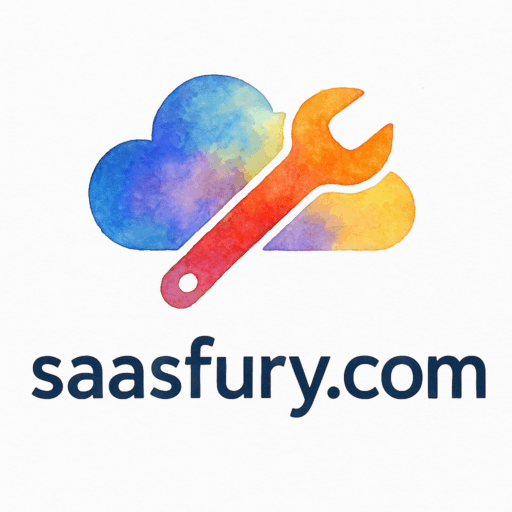Introduction: Why Small Clinics Need SaaS Tools
Running a small clinic means wearing many hats. You’re juggling patient care, scheduling, billing, and compliance—all without the resources of a large hospital. The problem? Traditional software often feels outdated, expensive, and too rigid. That’s where SaaS tools for small clinics change the game.
By moving to cloud-based solutions, clinics can access tools designed for healthcare, retail, education, and even professional services. This shift makes healthcare management smoother, more affordable, and more patient-friendly.
In this guide, we’ll explore 10 SaaS tool recommendations for small clinics, plus tips on how to pick the right ones.
What Are SaaS Tools in Healthcare?
SaaS Explained in Simple Terms
Think of SaaS like Netflix—but instead of movies, you get powerful business tools. Instead of owning servers or installing clunky programs, you log in online and get instant access to your clinic’s software.
If you’ve used e-commerce SaaS platforms or cloud-based scheduling apps, you’ve already used SaaS in everyday life.

How SaaS Tools Differ from Traditional Software
Traditional healthcare software requires costly installations, licenses, and regular IT maintenance. SaaS tools? They’re subscription-based, automatically updated, and can be accessed from anywhere—even your phone.
Benefits of SaaS Tools for Small Clinics
Cost-Effectiveness
Most SaaS solutions use monthly or annual subscriptions. No hefty upfront costs, no need for dedicated servers. For a small clinic, that’s a financial lifesaver.
Scalability and Flexibility
Your clinic may be small now, but what about in two years? SaaS platforms scale easily, making them perfect for growing clinics—similar to how retail SaaS tools help businesses expand.
Security and Compliance
Top healthcare SaaS providers are HIPAA-compliant, with encryption and backups built-in. Clinics don’t have to stress about data breaches.
Improved Patient Experience
From online appointment booking to digital prescriptions, SaaS tools enhance the patient journey—much like hospitality SaaS tools improve customer service.
10 SaaS Tool Recommendations for Small Clinics
1. Electronic Health Record (EHR) Systems
An EHR system keeps all patient data in one place: history, labs, medications, and notes. It reduces errors and improves coordination.
Why EHR Systems Matter for Clinics
Without EHRs, clinics drown in paperwork. With them, doctors can instantly access and update records—just like medical SaaS solutions designed for hospitals.
2. Appointment Scheduling Software
Patients expect online booking today. SaaS scheduling platforms streamline this process, eliminating long phone queues.
Simplifying Patient Bookings
Tools like scheduling SaaS reduce no-shows with reminders and optimize staff calendars automatically.
3. Telemedicine Platforms
Telehealth is now a necessity. A good telemedicine SaaS tool lets clinics reach patients remotely.
Expanding Care Beyond Clinic Walls
It’s especially powerful in rural areas. Telemedicine mirrors how online education SaaS connects students to teachers across borders.
4. Billing and Invoicing Solutions
Billing errors frustrate patients and slow down clinics. SaaS billing platforms automate claims, invoices, and payments.
Automating Payments and Insurance Claims
These solutions work much like retail SaaS payment systems, ensuring faster transactions and fewer mistakes.
5. Patient Communication Tools
Good communication means loyal patients. SaaS tools offer SMS, email, and patient portal features.
SMS, Emails, and Portals Made Easy
Think of it as healthcare’s version of marketing SaaS platforms—but focused on patients instead of customers.
6. Data Analytics and Reporting Tools
Your clinic generates tons of data every day. SaaS analytics tools help you make sense of it.
Turning Data Into Smart Decisions
Much like e-commerce SaaS tools use analytics to improve sales, healthcare SaaS helps clinics understand patient patterns and financial health.
7. Inventory and Supply Chain Management
Running out of gloves or syringes mid-shift is a nightmare. SaaS tools track inventory in real-time.
Keeping Clinics Stocked and Organized
These tools function like hospitality SaaS inventory systems—ensuring nothing runs out unexpectedly.
8. Marketing and Patient Engagement Platforms
Even small clinics need visibility. SaaS marketing tools help reach new patients and retain current ones.
Growing Clinic Visibility and Loyalty
Just as creative SaaS tools help agencies grow, healthcare marketing platforms improve outreach with email campaigns, social media, and loyalty programs.
9. Staff Collaboration and Workflow Tools
Communication gaps among staff slow things down. Collaboration SaaS tools bring everyone on the same page.
Boosting Internal Efficiency
Platforms like these mirror business SaaS tools—designed to streamline operations and keep workflows transparent.
10. Cybersecurity SaaS Solutions
With cyberattacks rising, clinics must protect patient records.
Protecting Sensitive Patient Data
Cybersecurity SaaS works like a virtual lockbox, similar to patient record SaaS solutions, ensuring sensitive data is never compromised.
How to Choose the Right SaaS Tools for Your Clinic
Identifying Clinic Needs
Start by asking: “What slows us down the most?” Is it billing? Scheduling? Supplies? Choose SaaS tools that solve those pain points first.
Budget Considerations
Subscriptions are cheaper than in-house IT, but clinics should pick SaaS that balances cost and features.
Integration With Existing Systems
The best SaaS tools integrate seamlessly with existing EHRs and clinic management software—much like omnichannel SaaS integrates retail channels.
Future of SaaS in Healthcare
AI-Driven SaaS Solutions
Expect AI tools that predict patient needs, recommend treatments, and automate follow-ups.
Cloud-Based Innovations
From healthcare SaaS tools to AI-powered diagnostics, the cloud is shaping the future of healthcare delivery.
Conclusion
Small clinics don’t need massive budgets to adopt cutting-edge tech. By using the right SaaS tool recommendations for small clinics, providers can streamline workflows, reduce costs, and deliver better care. Whether it’s EHR systems, scheduling tools, or cybersecurity platforms, SaaS gives small clinics the power of big hospitals—without the overhead.
FAQs
1. What is the most important SaaS tool for small clinics?
An EHR system is the most essential—it centralizes patient records securely.
2. Are SaaS tools expensive for small clinics?
No, most offer subscription pricing that’s affordable and scalable.
3. Can SaaS integrate with existing healthcare systems?
Yes, many integrate with healthcare SaaS solutions already in use.
4. How do SaaS tools improve patient care?
They make scheduling easier, reduce billing errors, and allow secure communication.
5. Are SaaS tools secure enough for patient data?
Yes, leading SaaS providers are HIPAA-compliant with advanced encryption.
6. Do clinics need IT staff to manage SaaS tools?
Not necessarily. SaaS platforms are user-friendly and managed by providers.
7. What’s next for SaaS in healthcare?
Expect more AI-driven SaaS platforms and cloud-based solutions to transform small clinics.

